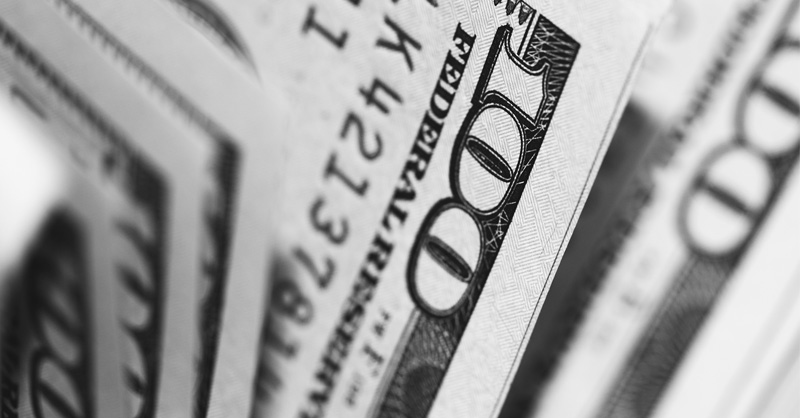US FTC expert witness costs consistently higher than anticipated
31 March 2021 00:00

Spending on expert witnesses at the US Federal Trade Commission reached a five-year peak during the federal fiscal year ending last September as the agency compensated outside consultants with an amount three times larger than it had allocated for in its budget.
Internal documents obtained by MLex through an open records request show expert witness costs have consistently exceeded budgeted amounts for the past five years, in two years by at least three times the budget and on average by more than double.
The Bureau of Competition is responsible for most of the expenditures, as well as the lion’s share of budget-busting consumption of expert witness dollars. From federal fiscal year 2016 onward, the bureau has spent at least slightly more, and often considerably more, than its annual expert witness budget.
The past half decade has been a litigious one for the FTC — in particular the 12 months from October 2019 through September 2020, during which the FTC launched more merger enforcement actions than at any other point in the previous two decades, then-FTC Chairman Joe Simons said shortly before his January departure.
Heavy spending on outside consultants has strained agency resources, with Chief Operating Officer David Robbins warning staff in a late December memo that cash woes may result in fewer cases. A $20 million boost by Congress to annual agency appropriations helped, but “we must continue to limit costs associated with expert intensive cases,” Robbins wrote. In December, the FTC had a record-setting seven simultaneous merger litigation challenges pending. The agency that month also joined 48 state and territorial attorneys general to sue Facebook for alleged monopolization practices.
A 2019 audit found the FTC pays on average more than $750 per hour for expert witness services and more than $280 an hour for support staff at expert firms.
In response to a request for an interview, an FTC spokesman emailed MLex links to previous congressional testimony from Simons. Large year-on-year growth in expert witness costs “are challenging to absorb” for an agency the size of the FTC, Simons told the House Judiciary antitrust subcommittee in November 2019. The FTC currently has an annual budget of $351 million.
Of the $82.5 million the FTC spent on expert witnesses from fiscal 2016 through fiscal 2020, the Bureau of Competition accounted for 83 percent of the total. In federal fiscal year 2020, expert witness costs amounted to $21.3 million, with the bureau accounting for $19.1 million of that total.
Exceeding budget caps is a side effect of a litigious era, said Bruce Hoffman, an attorney who served as director of the Bureau of Competition for more than two years through 2019.
“Expert costs are driven by highly idiosyncratic events. You don’t know when you start a year how many litigated cases am I going to have, how many mergers are going to be filed that I have to challenge,” he told MLex.
Costs during court proceedings can also change in unexpected ways. “You might have a case where you litigate and the other side comes up with six experts, and then you end up having to hire multiple expert witnesses instead of just one,” Hoffman said.
Agency contracting documents MLex obtained show merger investigation and litigation was a major part of FTC expert expenditures, with the agency sometimes forced to modify cost estimates for lengthy cases.
Compass Lexecon, Cornerstone Research, Charles River Associates, Bates White, Analysis Group and Global Economics Group were among the outside firms the FTC contracted with over the past five years. The documents show that some of the same experts hired by the FTC to testify against a merger also worked for defendants in other cases.
A merger between Walgreens and Rite Aid never landed in court, but the FTC’s nearly two-year investigation involved expenses for outside help from former top Department of Justice antitrust division economist Fiona Scott Morton and Charles River Associates, according to a “justification for other than full and open competition” document signed in October 2016 estimating the cost of their help at slightly more than $1 million.
The agency ultimately cleared Walgreens’ acquisition of a scaled down portion of Rite Aid stores in September 2017.
Scott Morton was also an expert for the FTC in its challenge to Otto Bock HealthCare’s acquisition of Freedom Innovations. Otto Bock ultimately divested assets following a long legal fight. FTC contractual paperwork shows the agency estimated that hiring Scott Morton and Charles River Associates would cost $200,000.
The FTC also sought expert help with the DraftKings-FanDuel deal, which collapsed after an agency challenge in June 2017. In a document signed in March 2017, the FTC estimated the cost of Mark Israel and Compass Lexecon’s services at $943,000.
Although he’s worked on the FTC’s side, Israel has also testified for merging companies, including against the agency’s challenges to the Peabody-Arch and Wilhelmsen-Drew deals. The FTC succeeded in blocking both proposed mergers.
Former DOJ antitrust division top economist Aviv Nevo and Cornerstone Research went toe-to-toe with Israel in the Wilhelmsen-Drew case for the FTC in a showdown FTC contracting staff estimated would cost $315,000.
In one other successful case, the agency’s challenge to the Sanford-Mid Dakota Clinic hospital deal in North Dakota, the FTC relied on in-house economist Seth B. Sacher to testify.
But even so, the FTC sought Dov Rothman and Analysis Group services to assist Sacher in “conducting a variety of economic and econometric analyses” and to support him as he prepared his initial expert report and reply expert report. The cost estimate was $298,611.
Related Articles
No results found
